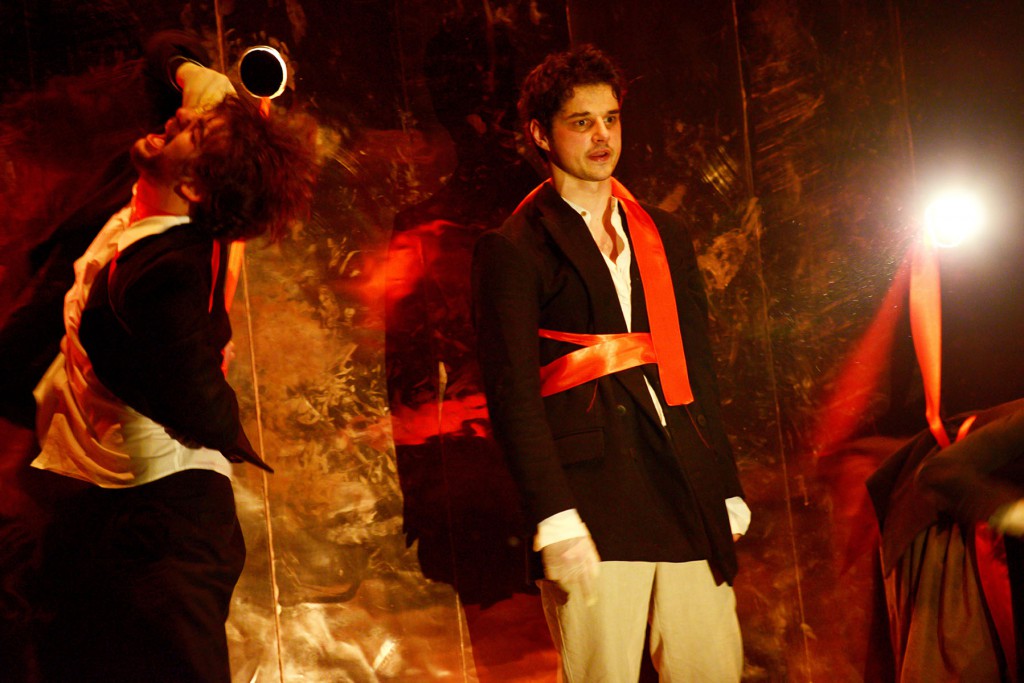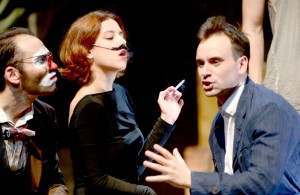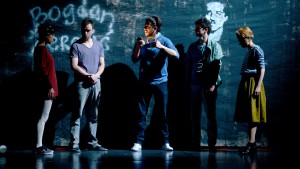SENTENCED TO FREEDOM
On 9 March 1983, at the corner of the Boulevard and what at the time was General Zhdanov Street, two desperate men from Armenia, undoubtedly terrorists by today’s standards, shot the Turkish ambassador to Belgrade. The Boulevard is no longer called Boulevard of the Revolution, but King Aleksandar Boulevard, General Zhdanov Street is now called Resavska Street, and what happened just after the assassination is quite unique.

The assassins started running through Tašmajdan Park, pursued by a policeman, and along with him a retired military man and a young man called Željko M. They were caught, and the fate of the wannabe assassins, and that of their victims, is no longer a part of this story. Because Željko M, the young man who, without giving it a second thought, lead by the instinct of the righteous, ran after the armed foreigners — is actually the only real victim of this assassination. He was killed, in the street, in the centre of the capital of a free country because he was exercising his freedom — such freedom that excludes taking someone else’s life.
A year later, the band Paraf from Rijeka, on their third and final album Zastave (Flags), released the song ‘Željko’, a wistful Joydivisionesque dirge about a man who did the unthinkable — sacrificed his own life at the altar of the free spirit of his country. Or its illusion: this we will never know. Who knows how many dreams/how many dreams the bullet extinguished/for this one dream/that’s layered diligently, sing the Paraf. What dream is this about? The same dream for the sake of which another desperate young man, seventy years earlier, in an ethical-historical paradox, took the life of an emperor-to-be, in order to end like a dog himself? For this same dream? Let’s make haste, the song will tell all: you’re cooling yourself down, Željko/on the wet pavement/how did you/enter history/at such a right angle — and let’s take a beat here because the key verse is about to follow, the one we’re telling all this for — people will remember you/ as they do Gavrilo, Željko.
People did not remember Željko M. Even the most hardcore of punks, even if they liked Paraf, and Paraf was liked indeed, it was the first punk band in SFR Yugoslavia, preceding Pankrti from Ljubljana who took the historic winnings, even the extreme connoisseurs can no longer remember what the song was about, the song entitled with a simple name, quite common at the time, devoid of clear tribal affiliation, a name containing the word that can describe an entire life, an entire human situation, one single moving word: želja (desire).
People, however, didn’t quite remember Gavrilo either. He was immediately pushed to the corners of history, almost at the same moment when a double murder was committed and several lives sacrificed for what was yet about to take shape. Gavrilo Princip had streets in towns of Yugoslavia dedicated to him, but not in all of them, unlike the living operatic dictator and a plethora of other young murderers who took other people’s lives and given their own for the dream that’s layered diligently. And they weren’t main streets either, oh, no, by no means. Belgrade’s Gavrilo Princip Street doesn’t look too presentable nowadays either. A couple of taverns, a shop owned by a famous centre-forward player from one of our lost generations, a park in which buying and selling of desire takes place at the lowest rates, shops selling goods usually sold at the outskirts of a city, the last old-school sweets shop in Belgrade — this, however, seems to belong to the world of the very same margins Gavrilo P. left forever with his own shots. Starving and bloodied is my people/And glorious past is a lie, sang another young desperate, and demanded: Raise (Dište, in Serbian, just like that, with assimilation of voice, dište, not diž’te, so that one needs to take this dizzying breath of fresh air, breathing it in without choking on it) for the killer a St.Vitus Day temple. The temple was never raised, St. Vitus Day is a spent metaphor, worn out by the dishonest use by the narrow-minded paper pushers, the glorious past is being written anew. And it gets increasingly less glorious. Thus a prisoner of freedom, a conspirator of the desire for freedom, an embodied spirit of men’s, and then also people’s (but not folk) need for freedom, is pushed to the sides, if he hasn’t already been used for a petty low base and insignificant goal.
Gavrilo is Princip, a prince and a principle of freedom. Sounds melodramatic? It should too, if anyone feels like it. The word freedom is not among the most important ones, so it seems here and now, in the world of moral frivolity and lack of ethic focus. Gavrilo — and by Gavrilo we mean: Grabež, Čabrinović, Mehmedbašić, Žerajić, Jukić, Kranjčević, Andrić, Mitrinović, Ilić, all the way back to Štrosmajer, Gaj, Kopitar, Njegoš, Vuk, even further back and at least a bit forward — Gavrilo is a certain vertical, an axis of the world which is in constant creation and constant dissipation.
The song Željko is also a song of profound loneliness. Cooling himself down on a pavement, the forgotten young man is the image of the same solitude in which resided high school students waiting on Apel’s Bank for the future ruler of the empire who was given their country by the whimsical will of powers that be as one is given a birthday gift, an empire that built a thousand kilometres of roads and railways respectively, bridged rivers, opened two or three high schools and a museum, and believed that, in turn, it had the right to their spirit and unambiguous obedience — they waited for this future Emperor so they could take him down before it was too late. Epochally late. Abandoned by everyone, by the ones who gave them the weapons, as they always do give weapons, cowardly, stealthily, in secret, abandoned by those they’ve done it all for, on their own behalf and nobody else’s, and for the love of those for whom, it will turn out, freedom is not a necessity but a superfluous luxury, abandoned by the epoch they are putting an end to and the one that is to ensue, alone in the world and alone with the world, Gavrilo and his mates, in spite of all, have made an epochal turn: they tore down a great big lie.
Their sole trouble was not the fact they committed a murder. The trouble is that lies have a way of being pleasant.
Go back to: Dramaturgical Materials of “The Dragonslayers”
Published on 23 November 2015




